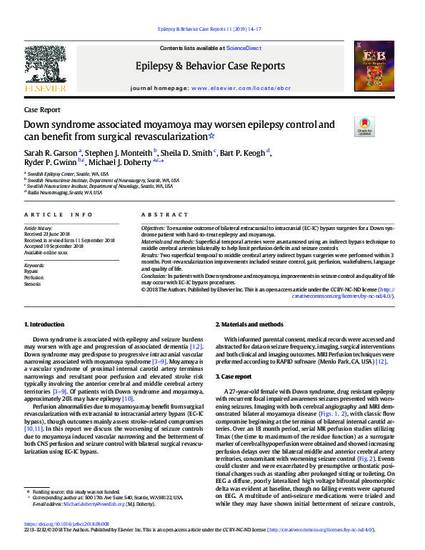
- Bypass,
- Perfusion,
- Stenosis
Objectives: To examine outcome of bilateral extracranial to intracranial (EC-IC) bypass surgeries for a Down syndrome patient with hard-to-treat epilepsy and moyamoya.
Materials and methods: Superficial temporal arteries were anastamosed using an indirect bypass technique to middle cerebral arteries bilaterally to help limit perfusion deficits and seizure controls.
Results: Two superficial temporal to middle cerebral artery indirect bypass surgeries were performed within 3 months. Post-revascularization improvements included seizure control, gait, perfusion, wakefulness, language and quality of life.
Conclusion: In patients with Down syndrome and moyamoya, improvements in seizure control and quality of life may occur with EC-IC bypass procedures.
Available at: http://works.bepress.com/michael-doherty/4/
